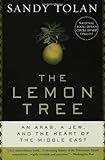IJFM recently released Sixteen Features of Belief and Practice in Two Movements among Muslims in Eastern Africa: What Does the Data Say? by Ben Naja. I think the publication of the empirical study is highly significant.
Obviously, just because something is happening doesn’t automatically mean God is blessing it. However, this Naja case study shows, regardless of our positions or opinions, that the Holy Spirit (apart from a postmodern expatriate missionary!) is birthing emerging expressions of “church” in frontier settings where MBBs retain, to some degree or another, a “Muslim” identity. (Whether or not they will always have a “Muslim” identity is another issue.)
Followers of Jesus in these movements:
- trust in Jesus alone for salvation, forgiveness, blessing and protection
- believe that Jesus is the Son of God who died on the cross for
their sins - have been baptized
- pursue a dual identity (social and cultural insider, spiritual outsider)
- do not acknowledge Muhammad as a true prophet nor trust in his power to intercede
- no longer consider the Qur’an as their sole and highest authority
- pursue diverse practices with regard to mosque attendance
- feel that they are a part of the worldwide family of God
- attend ekklesia meetings at least once a week
- read or listen to the Bible frequently
- share their faith
- have family members who also follow Jesus
- have been persecuted
- experience the supernatural power of God
- are frequently from a Sufi or other non-Wahabi background
- grow into more biblical expressions of faith and practice over time.
Here is an extended quote from the article:
My research provides empirical evidence that Jesus movements are a God-given way in which many Muslims are coming to saving faith in Christ. In addition, two features of these movements—pursuit of a dual identity and regular ekklesia gatherings within the Muslim community— are not simply theoretical possibilities, but actual reality.
In the literature on insider movements, supporters and opponents are divided as to whether such movements are a modern theoretical construct concocted by Western missiologists or whether they are actually happening as a God-given phenomenon in the Muslim world today. My research on these two Jesus movements in Eastern Africa seems to suggest the latter. These movements appear to have been divinely initiated and are not the result of a new strategy developed by a few mission strategists from the West. In fact, no Western gospel worker even knew about them at first. Only at a later stage, as more things were happening, were these movements brought to the attention of field practitioners. These practitioners then sought to find biblical guidelines and answers to the missiological questions these believers were asking.
Whatever their origin, the data make it clear that Jesus movements among Muslim communities are happening; they are an undeniable reality today.
My findings show that many followers of Jesus in these two movements pursue a dual identity. Culturally and socially, these believers are Muslim, while spiritually they are disciples of Jesus. They are still part of the wider Muslim community, even though their thinking diverges theologically and spiritually from that of mainstream orthodox Muslims. Their Muslim communities do not seem to mind that much what these disciples actually believe and practice, as long as they do not bring shame or offense to the community.
Within the wider umbrella of at least some expressions of Islam, there seems to be room for many deviant views, practices, and opinions. This is true not only for members of Jesus movements, but also for the very numerous members of Sufi orders or other Muslim sects.
The findings presented here show discreet gatherings of disciples of Jesus within a wider Muslim community to be a reality (and one that can now be carefully documented). The existence of “visible/invisible” informal groups of disciples (ekklesia) who regularly gather in the midst of Muslim communities might be one of the most important findings of my research.
These informal ekklesia are “invisible,” in that they do not actively seek public recognition by displaying Christian symbols or engaging in practices generally connected with Christianity (such as large buildings, loud music, or full-time clergy). But they are nonetheless very real or “visible” fellowships because actual people are meeting at actual times in actual places on a regular, at least weekly, basis.
Structurally, these ekklesias usually follow the lines of natural family and other pre-existing social networks. Rather than extracting members from their networks into an aggregate church, the kingdom of God and its values are implanted into them.
Given the rather authoritarian character of Islam, open or normal ekklesia gatherings do not seem to be an option. Nevertheless, my research shows that—however unlikely on a theoretical level—a new redemptive community within the old is an actual reality.
 I’m currently working on a theory of “Adaptive Evangelism” in resistant, Islamic contexts that is based on Arab MBB conversion factors.
I’m currently working on a theory of “Adaptive Evangelism” in resistant, Islamic contexts that is based on Arab MBB conversion factors. 

